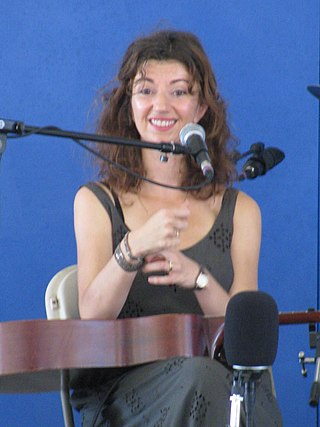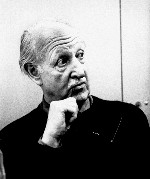
Welsh writing in English, is a term used to describe works written in the English language by Welsh writers.

Peter Finch is a Welsh author, psychogeographer and poet living in Cardiff, Wales.
John Ellis Caerwyn Williams FBA, was a Welsh scholar. His fields of study included the literatures of the Celtic languages, especially Welsh and Irish literature. He has published books in both English and Welsh.
Gillian Clarke is a Welsh poet and playwright, who also edits, broadcasts, lectures and translates from Welsh into English. She co-founded Tŷ Newydd, a writers' centre in North Wales.
Morgan Llwyd was a Puritan Fifth Monarchist and Welsh-language poet and prose author.
This article is about the particular significance of the year 2006 to Wales and its people.
David James Jones, commonly known by his bardic name Gwenallt, was a Welsh poet, critic, and scholar, and one of the most important figures of 20th-century Welsh-language literature. He created his bardic name by transposing Alltwen, the name of the village across the river from his birthplace.

The post of National Poet of Wales was established in May 2005 by Academi – the Welsh National Literature Promotion Agency and Society for Writers. The current holder of the position is Hanan Issa, who was appointed for a period of three years in July 2022.

Tŷ Newydd is a historic house in Llanystumdwy, near Criccieth, in Gwynedd, north-west Wales. Since 1990 it has housed the National Writing Centre of Wales. The centre specialises in residential creative writing and retreats. The courses are in both the English and Welsh languages, and cover many genres, forms and styles. The centre also holds regular seminars and forums.
Seren Books is the trading name of Poetry Wales Press, an independent publisher based in Bridgend, Wales, specialising in English-language writing from Wales and also publishing other literary fiction, poetry and non-fiction. Seren's aim is to bring Welsh literature and culture to a wider audience. The press takes its name from the Welsh word for "star".
The Wales Book of the Year is a Welsh literary award given annually to the best Welsh and English language works in the fields of fiction and literary criticism by Welsh or Welsh interest authors. Established in 1992, the awards are currently administered by Literature Wales, and supported by the Arts Council of Wales, Welsh Government and the Welsh Books Council.
Gwyn Thomas, FLSW was a Welsh poet and academic. He was the second National Poet of Wales, holding the role between 2006 and 2008.

Gwyneth Glyn is a Welsh language poet and musician.

Morgan Glyndwr Jones, generally known as Glyn Jones, was a Welsh novelist, poet and literary historian, and an important figure in Anglo-Welsh literature. He served as both Chairman and President of the Welsh Academy's English-language section. His study The Dragon Has Two Tongues (1968) discusses ways in which the interwar period affected his generation of Welsh authors.

Welsh-language literature has been produced continuously since the emergence of Welsh from Brythonic as a distinct language in around the 5th century AD. The earliest Welsh literature was poetry, which was extremely intricate in form from its earliest known examples, a tradition sustained today. Poetry was followed by the first British prose literature in the 11th century. Welsh-language literature has repeatedly played a major part in the self-assertion of Wales and its people. It continues to be held in the highest regard, as evidenced by the size and enthusiasm of the audiences attending the annual National Eisteddfod of Wales, probably the largest amateur arts festival in Europe, which crowns the literary prize winners in a dignified ceremony.
Grahame Clive Davies CVO is a poet, author, editor, librettist, literary critic and former journalist. He was brought up in the former coal mining village of Coedpoeth near Wrexham in north east Wales.
This article is about the particular significance of the year 2011 to Wales and its people.
Caryl Lewis is a Welsh novelist. She won the Wales Book of the Year in 2005 with her novel Martha Jac a Sianco, which was adapted into a film in 2008.
Bardd Plant Cymru is the poet laureate of Welsh-language children's literature. It is one of the two national children's literature roles in Wales, alongside the English-language Children's Laureate Wales role. It is run by Literature Wales, and supported by the Welsh Government, S4C, the Welsh Books Council and Urdd Gobaith Cymru.
Alun Llywelyn-Williams, born Alun Rhun Llewelyn Williams, was a poet, critic, academic and arts administrator. He was for more than 30 years on the faculty of the University College of North Wales, Bangor. His three Welsh-language verse collections – Cerddi 1934–1942 (1944), Pont y Caniedydd (1956), and Y Golau yn y Gwyll (1979) – secured him a distinctive place in the poetry of his country as a thoughtful observer of 20th-century Welsh life in the context of the wider European experience. The novelist and scholar Gwyn Jones wrote that he "says much to men of my generation that we dearly wish we could say ourselves about the course and aftermath of wars and depressions, the changing vistas of Wales and Welsh society, the hard-held hopes and ideals that no one else can carry for us, our regrets for good things lost and ploughed-in illusions." His work can be found in The Penguin Book of Welsh Verse, The Oxford Book of Welsh Verse, and The Oxford Book of Welsh Verse in English.








